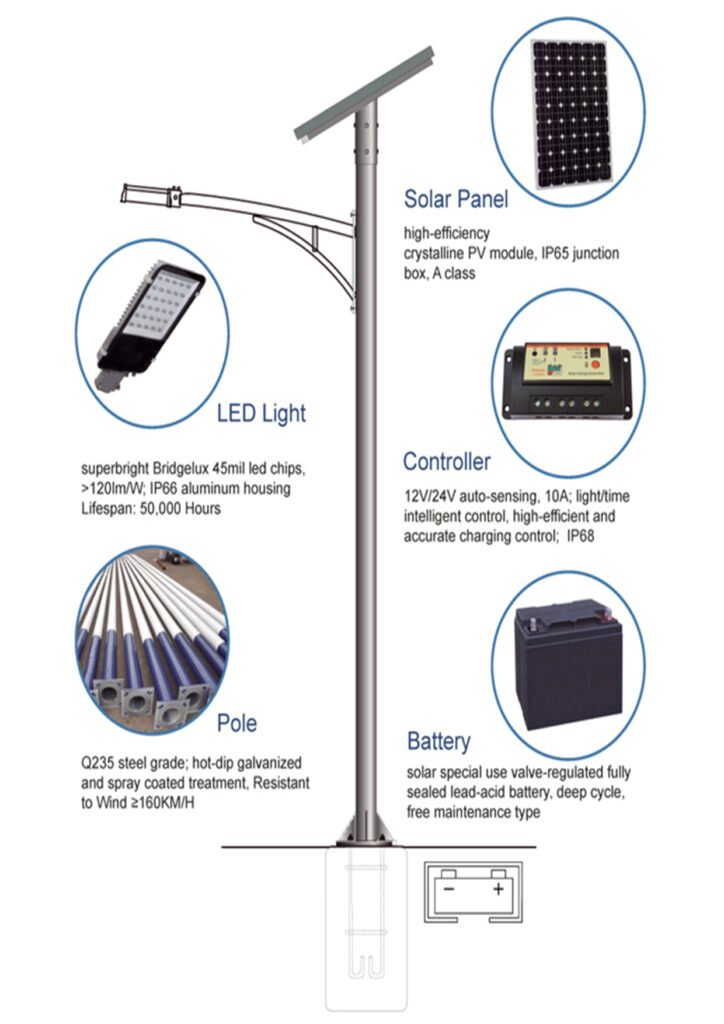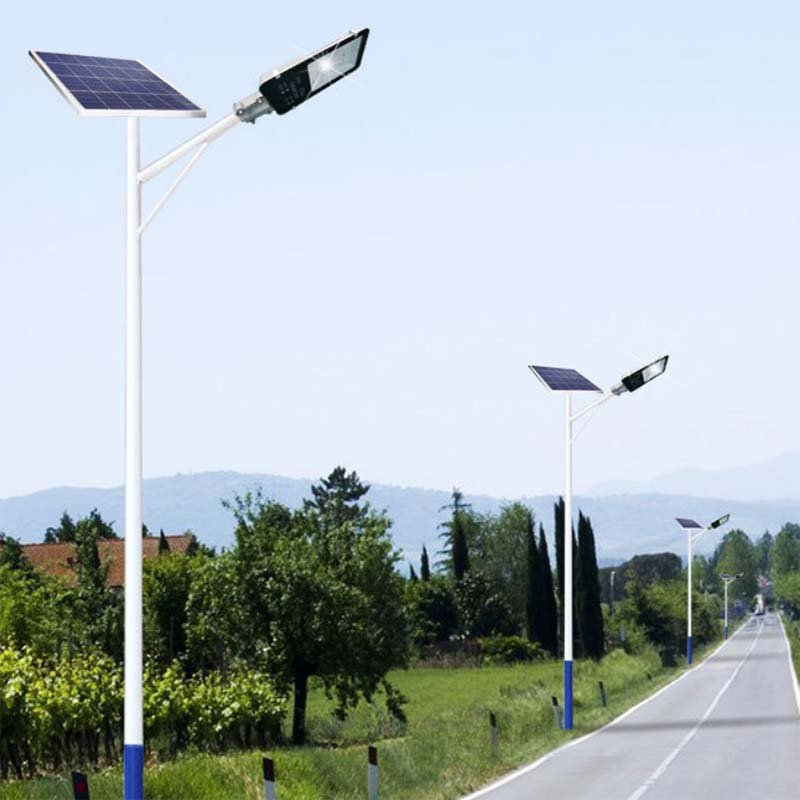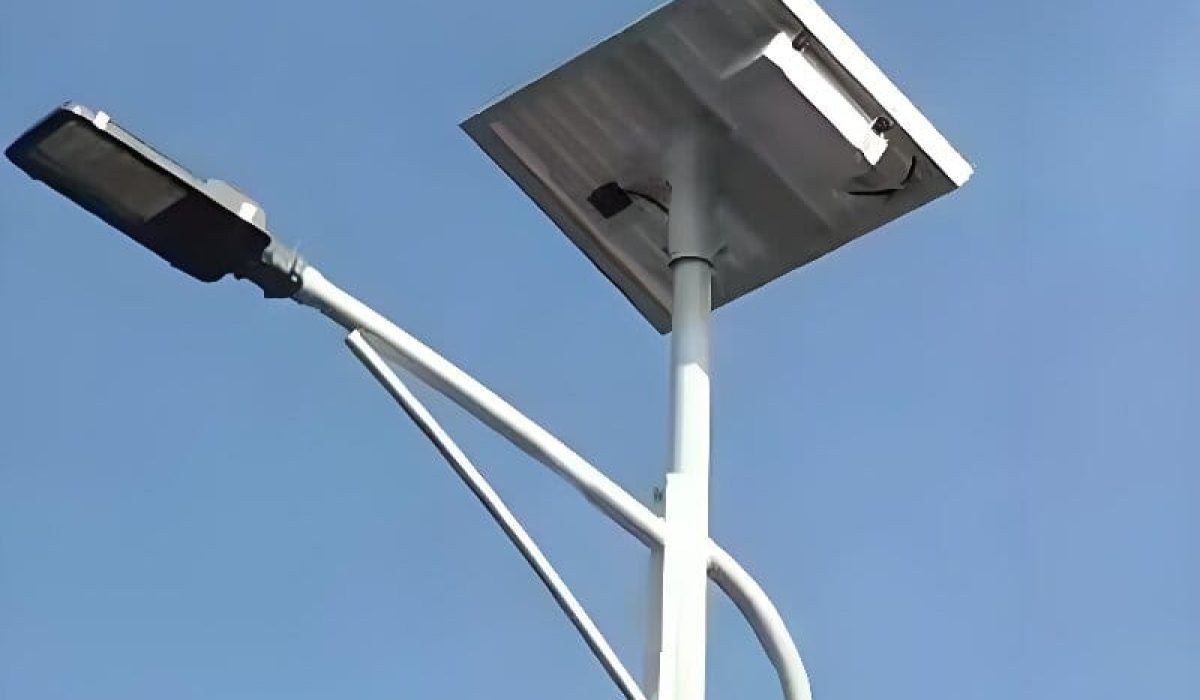Outdoor solar lights rely on batteries to store energy from the sun, ensuring they can provide reliable illumination at night. Without batteries, solar lights wouldn't function as expected, leaving your property dark after sunset. Understanding how batteries work can help you maximize the efficiency and lifespan of your solar lights.
Let’s dive into how these batteries work and why they’re a crucial part of making solar lighting an effective solution.
How Do Outdoor Solar Lights Work?
Outdoor solar lights are designed to harness the energy of the sun, which they convert into electricity using solar panels. That electricity is then stored in batteries for use when the sun sets. The battery powers the light at night, ensuring it remains illuminated through the darkness.
Without batteries, solar lights could only operate during the day when the sun is out, which would make them practically useless at night. Batteries ensure your solar lights have the power they need to operate automatically, no matter what time it is.
Why Are Batteries Important for Outdoor Solar Lights?
Storing Energy for Night Use
During the day, solar panels capture sunlight and convert it into electricity. But for the lights to work after sunset, they need to store that energy. Without a battery, there would be no way to hold the energy and no way for the lights to work once it gets dark.
Ensuring Reliable Performance
Imagine having solar lights that only work during the day and turn off at night—what would be the point of having them? Batteries provide the reliability you need, ensuring that your lights operate automatically at night, keeping your walkways, gardens, and yards illuminated when you need them most.
Efficient Operation
The quality and capacity of the battery directly influence how well your solar lights perform. Low-quality batteries can result in weak or inconsistent light output, leading to underwhelming performance at night. Investing in a high-quality battery ensures better performance and a longer lifespan for your solar lights.

What Types of Batteries Are Used in Solar Lights?
Nickel-Metal Hydride (NiMH) Batteries
These are commonly used in outdoor solar lights because they offer a balance of performance, cost, and environmental friendliness. NiMH batteries can charge quickly and deliver consistent power, making them ideal for reliable solar lighting.
Lithium-Ion Batteries
Though more expensive, Lithium-ion batteries provide longer-lasting power, better efficiency, and longer lifespan. They are especially useful in extreme weather conditions and for high-performance solar lights.
Lead-Acid Batteries
While lead-acid batteries are sometimes used for larger solar lighting systems, they are bulkier and tend to have shorter lifespans compared to other options. They are less efficient in storing energy, which can be an issue for smaller or residential solar lights.
Do Solar Lights Require Maintenance or Battery Replacements?
Battery Lifespan
Batteries in solar lights typically last anywhere from 1 to 3 years. Over time, they may degrade and lose their ability to hold a charge. If your solar lights aren’t shining as brightly or aren’t lasting as long through the night, it may be time to replace the battery.
Tips for Maintenance
- Regular Cleaning: Solar panels collect dust and dirt, which can reduce their efficiency. Regularly clean the panels to ensure they can capture maximum sunlight.
- Battery Replacement: If the lights start to flicker or go dim, it’s likely the battery has worn out. Replacing it will restore your lights to their full capacity.

Benefits of Using Batteries in Outdoor Solar Lights
Cost-Effective
By choosing solar lights with batteries, you're eliminating the need for wiring and significantly reducing your electricity bill. Once installed, solar lights essentially run for free, powered by the sun, with no ongoing operational costs.
Eco-Friendly Solution
Solar lighting is one of the greenest options available. By using renewable energy, you're reducing your carbon footprint and supporting environmental sustainability, which is increasingly important for individuals and businesses alike.
Automatic Lighting
Solar lights with batteries are equipped with light sensors that automatically turn them on at dusk and off at dawn. This automation means you don’t have to worry about manually switching your lights on and off every day. It’s hassle-free and convenient.

Conclusion
If you’ve been wondering whether outdoor solar lights need batteries, the answer is yes. Batteries are essential for solar lights to store energy and operate automatically at night, ensuring you have reliable, cost-effective, and eco-friendly lighting. By choosing high-quality batteries, maintaining your solar lights, and understanding their power needs, you can enjoy long-lasting performance and peace of mind knowing your lights will shine bright every night.


